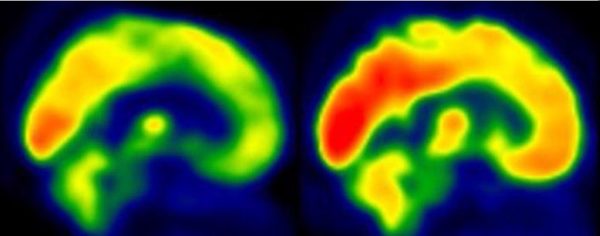Minimising the risk of Alzheimer’s disease-by Harold Gunatillake

Web Site:-http://doctorharold.com/
Transcript:
Alzheimer’s disease is an inflammatory degenerative disease of the brain described as early as 1906 by Dr. Alois Alzheimer.
There is progressive memory loss and loss of cognitive function.
Now what does cognitive function mean?
It is an intellectual process by which one becomes aware of, perceives, or comprehends ideas.
It includes multiple mental abilities, learning, thinking, reasoning, remembering, problem solving, decision making and attention.
When you decline from these mental abilities and affects the performance of daily activities, we call it dementia.
Alzheimer’s disease is the most common form of dementia.It is more specific and is the most common type of dementia accounting for 80% of cases.
Incidence
In 2009 the number of Australians with dementia was estimated to be 245,000. Due to our ageing population, the incidence of dementia is estimated to rise above 1.1 million by 2050. Every five years after the age of 65, the likelihood of living with dementia doubles and the disease affects one in four people aged 85 and over.
There are two types of Alzheimer’s disease, sporadic and familial (hereditary). In the sporadic form, the disease is usually diagnosed after the age of 65 and is by far the most common form.
In the less common familial form, the disease runs in families and usually affects people in their 40s or 50s.
“The increase in early-onset dementia and Alzheimer’s diagnoses among a generation who typically wouldn’t expect to encounter these conditions for several decades is concerning, especially since there is no cure for Alzheimer’s disease,” said Dr. Vincent Nelson, vice president of medical affairs for the Blue Cross Blue Shield Association, US. which gathered data for the report from a database of medical claims of more than 48 million commercially insured Blue Cross customers.
Considering that by the time you reach 85 years of age, your odds of developing Alzheimer’s Disease are almost one in two in the US.,
This video is all about discussing how we could minimise the risk of getting brain-destroying disease.
Alzheimer’s disease cannot be cured with pills or just seeing your doctor.
Like most other long-term diseases, Alzheimer’s should be considered as an inflammatory event.
That alone gives us a clew in which direction we should follow to minimise the risk.
Diet and physical and mental activities are important, and Mediterranean diet alone supposed to reduce the risk of this disease.
In short, most cases of Alzheimer’s and dementia cases are avoidable.
As we talk that Alzheimer’s disease is an inflammatory disease, turmeric, a spice best known as an ingredient in curry powder, may help prevent Alzheimer’s disease.
However, studies in animals have found turmeric may influence several brain changes that take place in the progression of Alzheimer’s disease.
Most cases of Alzheimer’s and dementia are avoidable. On the Greek island of Ikaria, there is a population of 10,000 people living eight to 10 years longer than Americans with half the rate of heart disease, much less cancer, and most extraordinarily, almost no cases of dementia.
How Are Ikarians Avoiding Alzheimer’s Disease?
It is all about diet and physical and mental activities’
Ikarians eat a Mediterranean diet composed of a high in vegetables, beans, fruit, and nuts, and low in meat and dairy. But what are the protective components in the diet? Looking at the research, the important dietary differences seem to be the high plant consumption and the lower fat consumption.
If you are living in America and you hit 85 years, there’s a high chance you have Alzheimer’s disease. On Ikaria, you have a less than 10 percent chance. People are staying sharp and healthy until the end, says Dan Buettner Founder of Blue Zones, National Geographical Fellow and New York Times bestselling author.
China has the lowest fat intake and lowest Alzheimer’s incidence compared to the United States having the highest fat intake and highest Alzheimer’s rates.
It is not the unsaturated fat consumption, but the saturated fats in meat and diary products that cause the problems, such as poorer trajectory of cognition and memory, as in the risk heart disease.
So, the foods to avoid are: Beef, lamb, pork, butter, cheese, sausages.
This alone shows the folly of people going into Keto diets to reduce weight as a long-term plan.
The Mediterranean diet is composed of:
1. High intake of vegetables, legumes, fruits, and cereals
2. High intake of unsaturated fatty acids (mostly in the form of olive oil)
3. Low intake of saturated fatty acids
4. Moderately high intake of fish
5. Low-to-moderate intake of dairy products (mostly cheese or yogurt)
6. Low intake of meat and poultry
7. Regular but moderate amount of ethanol, primarily in the form of wine and generally during meals.
Ikarians also seem to drink lot of herbal teas made from oregano, dandelion, sage and rosemary. They are found to be anti-inflammatories and have a mild diuretic function which controls your blood pressure.
John Hopkins research published in the journal Neurology confirmed that the use of diuretics reduced the risk of Alzheimer’s by nearly 75 percent. Other research confirms that diuretics have a neuroprotective benefit.
Exercise is very important to reduce the risk of Alzheimer’s disease. Ikaria is a mountainous village, and walking seems to be the mode of transport.
Social contact:
The way the Ikarians live in the mountains can’t avoid social contact. It is customary and traditional for Ikarians to socialise frequently. They have regular village festivals, at church, and at celebrations. If you don’t patronize them, your neighbour will be pounding at your door wondering where you are.
Ikarians are much less likely to suffer loneliness and depression than Americans. Depressed people are 50 percent more likely to suffer from dementia.
Sri Lankans living in Melbourne and Sydney organize frequent film shows, dance recitals, dinner dances, and many artists are brought from Sri Lanka to provide entertainment. Hopper Nites are quite popular in both cities.
Such events make the expat Sri Lankans live longer, actively with less risk of getting mental illnesses.
Seniors over the age of 60, gather in Sydney, once a month for a rendezvous, an event enjoyed, and such social activities with the right diet and being physical would be the answer for expat Sri Lankans to prevent mental diseases.
Exercise
Exercise s the panacea for most chronic illnesses, including arthritis and Dementia.
A new study found that people at risk for Alzheimer’s disease but whose brains were still healthy improved their thinking skills by exercising.
Their brains also got better at metabolizing glucose, the sugar that powers the mind.
Aerobic exercise has been associated with reduced burden of brain and cognitive changes related to Alzheimer’s disease (AD).
Brains got better at metabolizing glucose that powers the mind after exercise, and its efficient metabolism is a sign of healthy neurons.

Glucose metabolism is shown in a sedentary person (left) and in someone after a 26-week program of moderate exercise (right). Images: Brain Plasticity journal
Bottomline:
Start now, with these simple lifestyle habits and diets mentioned, to lower your risk of Alzheimer’s and almost all other common chronic diseases.
Author: Dr Gunatillake-Health editor is a member of the Academy of Medicine, Singapore. Member of the Australian Association of Cosmetic Surgery. Fellow of the Royal College of Surgeons (UK), Corresponding Fellow of the American Academy of Cosmetic Surgery, Member of the International Societies of Cosmetic surgery, Fellow of the International College of Surgery (US), Australian diplomat for the International Society of Plastic, Aesthetic & Reconstructive Surgery, Board member of the International Society of Aesthetic Surgery, Member of the American Academy of Aesthetic & restorative Surgery, Life Member of the College of Surgeons, Sri Lanka, Batchelor of Medicine & Surgery (Cey). Government scholar to UK for higher studies








No Comments